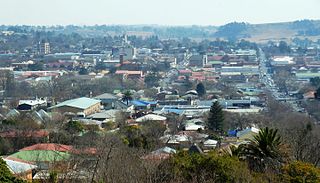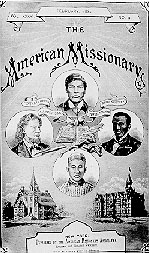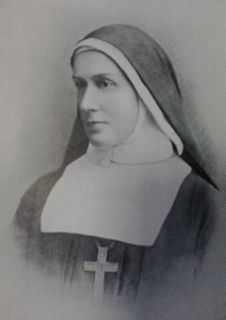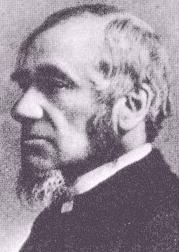The Brotherhood of St Augustine of Hippo was an Anglican brotherhood founded in the Orange Free State, South Africa in 1867, and was based at Modderpoort from 1869, in the Diocese of Bloemfontein. [1]

The Orange Free State was an independent Boer sovereign republic in southern Africa during the second half of the 19th century, which later became a British colony and a province of the Union of South Africa. It is the historical precursor to the present-day Free State province. Extending between the Orange and Vaal rivers, its borders were determined by the United Kingdom of Great Britain and Ireland in 1848 when the region was proclaimed as the Orange River Sovereignty, with a seat of a British Resident in Bloemfontein.

Modderpoort, also known as Lekhalong la Bo Tau or ‘The Pass of the Lions’, is the site in the eastern Free State, South Africa, where the Anglican Missionary Brotherhood, the Brotherhood of St Augustine of Hippo, was established by Bishop Edward Twells in the late 1860s. It is also associated with the BaSotho prophetess Mantsopa, while the ‘sacred landscape’ in the vicinity includes San rock painting sites.
Edward Twells, the first bishop of Bloemfontein, had called for the establishment of a missionary brotherhood in 1865. In response, Henry Beckett left England for the Orange Free State in July 1867, with seven young men who would be the founding members of the Brotherhood of St Augustine of Hippo.
Edward Twells was the first Bishop of Bloemfontein in South Africa from 1863 to 1869. He was the younger brother of Henry Twells. He died at the age of 70 at his house, Pembrokegate, at Clifton, Bristol.
Twells had purchased the farms Modderpoort and Modderpoort Spruit in 1865 as a base for missionary work in the area, but conflict in the region prevented the first group of brothers from settling there right away. The Brotherhood thus established itself initially at Springfield near Bloemfontein, starting its missionary work at Thaba Nchu.

Bloemfontein is the capital city of the province of Free State of South Africa; and, as the judicial capital of the nation, one of South Africa's three national capitals and is the seventh largest city in South Africa. Situated at an altitude of 1,395 m (4,577 ft) above sea level, the city is home to approximately 520,000 residents and forms part of the Mangaung Metropolitan Municipality which has a population of 747,431.
Three of the group of seven fell away before the Brotherhood finally occupied Modderpoort in the autumn of 1869. Initially they occupied a cave.
A priory and a sandstone chapel dedicated to St Augustine of Hippo were built by the brothers.

Saint Augustine of Hippo was a Roman African, early Christian theologian and philosopher from Numidia whose writings influenced the development of Western Christianity and Western philosophy. He was the bishop of Hippo Regius in north Africa and is viewed as one of the most important Church Fathers in Western Christianity for his writings in the Patristic Period. Among his most important works are The City of God, De doctrina Christiana and Confessions.
Modderpoort was taken over, in 1902, by the Anglican Society of the Sacred Mission (SSM).
The Society of the Sacred Mission (SSM) is an Anglican religious order founded in 1893 by Father Herbert Kelly, envisaged such that "members of the Society share a common life of prayer and fellowship in a variety of educational, pastoral and community activities in England, Australia, Japan, Lesotho, and South Africa.""Our Society was founded in 1893 in Kennington, to train people for missionary service in Korea. Somehow we got side-tracked into training clergy for the Church in England - but that stopped in the 1970s." Members have included Gabriel Hebert and George Every.







